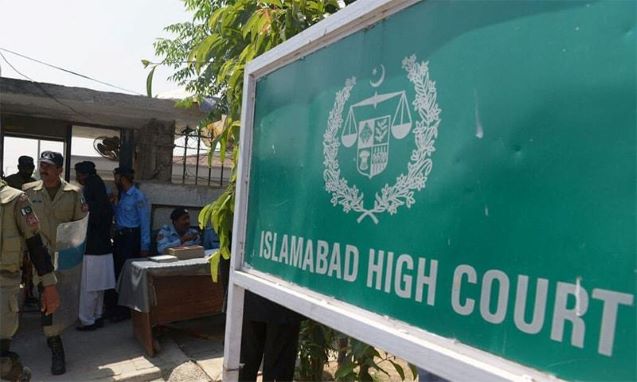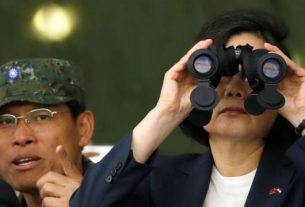The intelligence snoops are probably under the impression that members of the superior judiciary can also be easily managed like political leaders, but to their great surprise, the six judges of the IHC decided to defy them
by Tariq Aqil
In a rather shocking and startling move, six honourable judges of the Islamabad High Court have written a letter to the Supreme Judicial Council. In this rather enigmatic letter, the six judges have accused the premier intelligence agencies of interference in the judicial system of Pakistan, that includes putting pressure on the judges, including threats of abduction and torture of family members and planting surveillance devices including audio and video devices inside the homes of some judges. This letter has been addressed to the Chief Justice of Pakistan Justice Qazi Faez Isa, SC judges Mansoor Ali Shah and Munib Akhtar and the Chief Justices of the IHC and Peshawar High Court. The letter, dated 25 March, has been signed by Justices Mohsin Akhtar Kiyani, Tariq Mehmood Jahangir, Babar Sattar, Sardar Ejaz Ishaq Khan, Arbab Muhammad Tahir, and Saman Rafat Imtiaz of the Islamabad High Court.
This letter has listed several instances of interference and intimidation by intelligence agencies to influence judgment in certain cases. The case of the PTI founder Imran Khan has been cited. When two of the three judges hearing the case to disqualify Imran Khan for concealing the existence of his daughter expressed an opinion that the case was not maintainable, the letter alleges, they were intimidated by the intelligence agency through various means including friends and relatives. This pressure campaign was so serious that one of the judges developed extremely high blood pressure and had to be admitted to a hospital.
According to the letter, the matter was brought to the notice of the Chief Justice of the Islamabad High Court and the Chief Justice of Pakistan, and the former declared that he has “spoken to the DG-C of the ISI and has been assured that no official ISI will approach the judges of the IHC.” The letter went on to claim that “interference on part of the intelligence operatives” continued even after the assurance given by the Chief Justice of the IHC, and they cited the case of abduction of an IHC judge’s brother-in-law by armed men claiming to be from an intelligence agency. It has been alleged that the abducted person was given electric shocks and was forced to record a video making false allegations against the judge.
The letter also went on to say that it was in May 2023 that an inspection judge reported to the Chief Justice that district court judges were threatened and even crackers were thrown into the house of one additional district sessions judge. Instead of probing the case, the “judge was made an officer on special duty and transferred to IHC and then sent back to Punjab as he was a judicial officer on deputation” and last year the official residence of a IHC judge was bugged with concealed spy cameras in his drawing and bedrooms. This matter was also reported to the Chief Justice IHC but it was not found who is responsible for this equipment being installed in the residence of the judge. This letter by the six judges of the IHC also had copies of the letters written to the Chief Justice of the IHC on 10 May 2023 and 12 February 2024.
Further, the letter also alleges that intelligence agency officials tried to pressurize IHC judges to probe into the tax records of at least one judge “to seek a certain outcome.”
The signatories of the letter are asking to determine whether there was a “policy on the part of the executive—-implemented by intelligence operatives” to intimidate judges. The judges of the IHC further requested a judicial convention to discuss the interference of intelligence officials “that undermines the independence of the judiciary.”
The very recent case of Justice Shaukat Aziz Siddiqui is another example of making an example of a judge for daring to challenge the Powers That Be. Justice Siddiqui had made some shocking statements in a speech to a Bar Council when he accused the intelligence agencies of intimidating him to get the decision of their liking in a certain high profile case. Justice Siddiqui subsequently was dismissed from his post by the Supreme Judicial Council and it was after more than six years that his honour and privileges were restored by a bench of the Supreme Court.
Interference in the working of the judiciary is nothing new: it has happened repeatedly in the past, and goes on even today perhaps with a greater intensity. The judges further added in their letter, “We believe that individual judges must not be required to be as brave as Justice Qazi Faez Isa, the CJP to fight persecution at the hands of the executive on their own, or as resolute as Justice Siddiqui, to continue to fight a wrong for personal vindication long after removal from office. If independence of the judiciary is a salient feature of the constitution meant to uphold fundamental rights and dispense justice in accordance with the law in public interest, there is need for an institutional response to uphold and protect independence of the Judiciary.”
Some blatant cases of manipulating judicial decisions are the case of ZA Bhutto and his subsequent conviction and the very recent case of Justice Shaukat Aziz Siddiqui. The intelligence snoops are probably under the impression that members of the superior judiciary can also be easily managed like political leaders, but to their great surprise, the six judges of the IHC decided to defy them and take a collective stand against interference and meddling in the cases being heard by them.
The Chief Justice of Pakistan Qazi Faez Isa has taken notice of the issue and called for a full court reference to discuss the legal and constitutional aspects of this letter. He presided over the meeting attended by all the judges of the Supreme Court and subsequently had another meeting with the Prime Minister and the Federal Law minister to discuss the matter. The ball is now in the court of the Chief Justice of Pakistan and all eyes are on him to see how he handles this very sensitive but vital public issue.__Courtesy The Friday Times Pakistan





